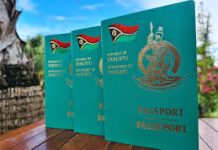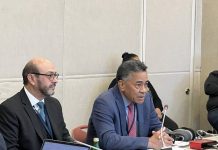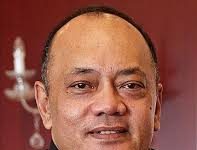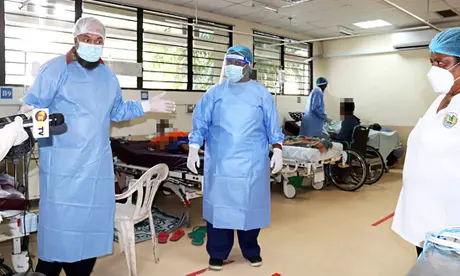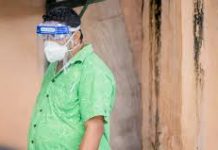One of Papua New Guinea’s chief health officers have warned the country’s low testing rates, high percentage of positive tests and low vaccination rates provide a “recipe for major spread of the Delta variant” after the country recorded its 12th case of the deadly strain.
Dr Daoni Esorom, the deputy controller of PNG’s national pandemic response, said officials were so concerned that low testing rates were masking a serious outbreak that they had ordered doctors at the country’s biggest hospital to swab all corpses of people who had died from unknown causes or who had respiratory illnesses, to see if they had Covid-19.
“Testing in PNG has also reduced since March, it is difficult to know how widespread the transmission of Delta variant is in the country,” said Esorom.
“If you have a low level of testing, and have a high uptake of detection of positive cases (at the moment it’s 12%) and you have a large pool of unvaccinated people, that is recipe for major spread of the Delta variant.”
“There is also anecdotal evidence from Madang’s Modilon hospital of increasing number of deaths of unknown causes and also at the Port Moresby General hospital. We have since sent out a circular sent to Port Moresby General hospital to swab all corpses with unknown causes of death and those with respiratory illnesses,” he said.
The Delta variant was first detected in PNG on 10 July after the captain of a ship from the Philippines and one of his crew tested positive and underwent isolation at the Port Moresby General hospital isolation facility for 15 days.
The country now had 12 confirmed Delta cases, the last three detected in Western province. A team had been dispatched to the province to help with contact tracing and give technical advice and guidance on how to respond on the ground. Similar measures were taken last week when cases were detected in Madang in the country’s north-east.
Papua New Guinea had officially recorded 17,827 Covid-19 cases and 192 deaths across the pandemic.
An outbreak in March saw PNG’s partners scramble to send emergency doses of vaccines to the Pacific nation, but the rollout of the vaccine had been slow, with fewer than 100,000 doses administered among a population of around nine million people. Health authorities would not confirm how many of those doses were first or second doses, but in July, just 60,000 people – or 0.6% of the population – had received their first dose, with just over 2,800 people having received their second dose.
Dr Rendi Moke, the Covid-19 committee chairman at Port Moresby General hospital, said they were on alert for a probable surge in Delta cases, at least for the rest of this year.
“We are communicating closely with NCD Provincial Heath Authority and St John Ambulance, with appropriate surge plans.”
Moke said there were fewer positive cases presenting to the hospital than during the March outbreak and the hospital currently only had two mild cases in its isolation facility, but they were bracing for a bigger outbreak.
“I’m not sure at this stage why there has been no surge since Delta case was first reported,” he said. “But we will remain vigilant.”
Despite growing concerns from health authorities, there was still a lot of scepticism about Covid-19 among the general population.
Esther, a primary school teacher from Port Moresby who did not wish to give her surname in case she was penalised by her bosses, said she did not think Covid-19 was real and the government was only talking about the Delta variant to make money from partner countries, who had offered support to PNG to combat Covid.
“I teach in a crowded classroom every day, my students come from all parts of the city, if Covid was real we would have long been infected.”
Justin Asasu, a 39-year-old man from Gulf, said he used public transport to go to work every day.
“Living in Gerehu, which has the biggest population in Port Moresby, we always rush and even push each other to get on the bus every morning and every afternoon. But still I haven’t been infected yet, I think it’s just bullshit,” he said.
Anand Das, ChildFund’s PNG country director, said vaccine confidence was a huge barrier.
“We have plenty of AstraZeneca vaccine supply available, but unfortunately we are seeing a lot of vaccine hesitancy in the community – mostly due to misinformation being spread on social media and people not understanding the real threat that the Covid-19 virus poses.
“There is still misinformation being spread that Covid-19 is like a flu, which means that people aren’t as readily turning up to get vaccinated. Many people are not convinced that Covid is a real threat to lives,” said Dass.
SOURCE: THE GUARDIAN/PACNEWS


